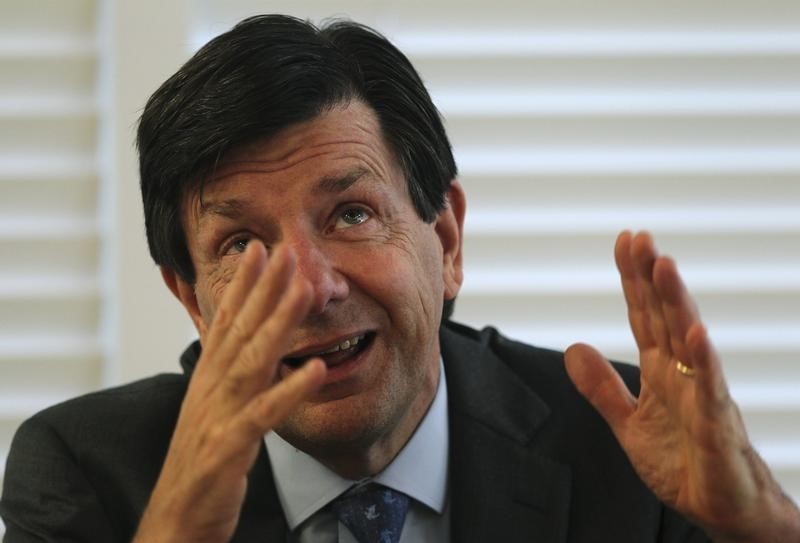By Guillermo Parra-Bernal
SAO PAULO (Reuters) - Brazil's escalating political turmoil is dragging the economy through the mire, as the government looks unable to implement much-needed reforms to resuscitate activity, the head of the nation's biggest private-sector bank said late on Tuesday.
As President Dilma Rousseff's administration wrestles with fallout from a corruption probe and what appears to be the nation's harshest recession ever, plans to curb excess pension benefits and simplify the tax code have been put on the backburner, said Roberto Setubal, chief executive of Itaú Unibanco Holding SA.
Speaking at an event organised by students of the University of São Paulo's economics department, Setubal said the government's ability to pull Brazil from recession has been severely hampered by years of erratic policy decisions and the corruption probe.
"In Brazil, everything is possible but nothing is probable, driving uncertainty to unbearable levels while hurting the economy," Setubal said. "This government was elected to maintain the status quo, not to change it."
Investors have bought up Brazilian bonds and stocks over the past week because of the increasing likelihood that Rousseff may be removed. Over a million people marched in demonstrations across Brazil on Sunday, calling for Rousseff's ouster and voicing support for the probe, which is investigating money-laundering and bribery at state-controlled firms.
Companies have gone on the defensive to survive the crisis, and many face painful debt restructurings, José Olympio Pereira, who heads Credit Suisse (SIX:CSGN) Group AG's Brazilian unit, said at the same event. The ongoing wave of pessimism is "the worst I've seen in my 30 years of market career," he added, speaking in Portuguese.
Itaú, Latin America's No. 1 bank by market value, has curbed costs, turned extra cautious on lending and grown fee-related income to mitigate the impact of the recession, Setubal added. Investment to expand Itaú's business has been traded for spending in efficiency-enhancing activities like technology, he added.
Brazilian citizens should avoid electing "messianic" leaders who portray themselves as saviours promising to fix the country's problems without a realistic plan, Setubal said.

In turn, Credit Suisse's Pereira stressed the necessity of building political leaderships capable of educating voters of the need to fix the pension, tax and labour codes to make the nation's finances sustainable over time.